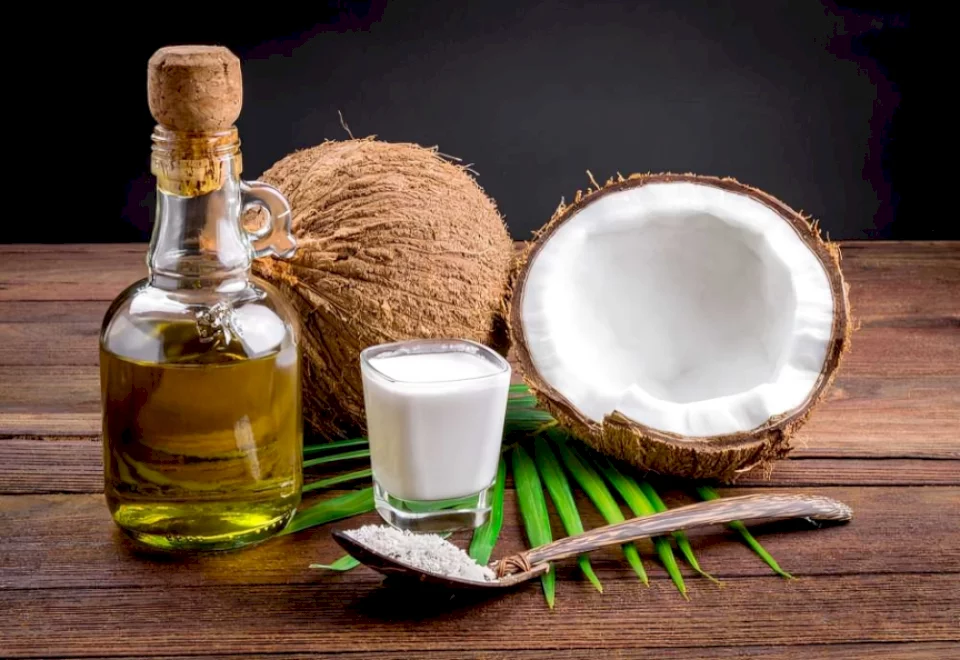
Coconut Water or Aloe Vera Juice... Which is Better for Hydration and Nutrition?
SadaNews - Are you looking for the best natural drink to hydrate your body and replenish minerals after workouts or during the summer?
Coconut water and aloe vera juice top the list of healthy drinks rich in benefits, but the question that concerns many is: which one is better for hydration and digestive health?
A report from "Verywell Health" outlines the essential differences between them in terms of nutritional value, health benefits, and potential risks, enabling you to choose the drink that best suits your body and daily needs.
When should you choose aloe vera or coconut water?
For body hydration, coconut water prevails; it is rich in electrolytes and potassium, and it serves as a natural alternative to commercial energy drinks; it helps replenish lost water, sodium, and potassium during prolonged sweating sessions.
For digestive issues, aloe vera juice is the better choice; its soothing and anti-inflammatory properties help alleviate acidity, constipation, abdominal pain, and ulcers.
Benefits and Uses of Coconut Water
Coconut water is extracted from young green coconuts, and it is a clear liquid with a sweet taste found inside the shell.
Nutritional components per cup (240 grams):
Water: 95.5%.
Fat: 0.5 grams.
Protein: 1.7 grams.
Carbohydrates: 9 grams.
Calcium: 58 mg.
Phosphorus: 48 mg.
Potassium: 600 mg.
Sodium: 252 mg.
Magnesium: 60 mg.
Iron: 0.7 mg.
Vitamin C: 5.8 mg.
Values may vary depending on the commercial product; hence, it is recommended to read the nutritional label.
Potential benefits according to preliminary studies:
Reduce inflammation.
Lower blood pressure.
Protect heart and circulatory system.
Combat bacteria and viruses.
Prevent ulcers.
Reduce fluid retention.
Coconut water is also used as a natural alternative to sports drinks; it helps maintain fluid balance in the body. In some countries, it is used to treat diarrhea in children and stomach infections caused by viruses or bacteria.
Benefits and Uses of Aloe Vera Juice
Aloe vera juice is prepared from different parts of the plant's leaves, such as the inner gel, the latex (the yellow material), or the whole leaf after crushing.
The inner gel of aloe vera contains:
Vitamins: Beta carotene, Vitamins B, B1, B2, B12, folic acid, Vitamin C, and Vitamin E.
Minerals: Zinc, copper, calcium, magnesium.
Potential benefits according to limited studies:
Lower cholesterol when taken in high doses as a supplement.
Help lower blood sugar levels.
Anti-inflammatory properties.
Potential anti-proliferative effects on harmful cells.
Main uses:
Aloe vera juice is known for its laxative effect, and a preliminary study has shown that aloe vera syrup may relieve symptoms of chronic gastroesophageal reflux such as acidity, nausea, and gas.
Precautions and warnings
Coconut Water:
Generally safe, but excessive consumption may cause problems in certain conditions; it may lead to high potassium levels in individuals with kidney disease or diabetes or those taking medications that preserve potassium.
It acts as a mild diuretic; consuming large amounts may lead to lower blood pressure.
Aloe Vera Juice:
It is important to read the label carefully; because some parts of the plant may be harmful; consuming latex can cause cramps and diarrhea. Consuming whole leaf extract has been associated with rare cases of hepatitis. The International Agency for Research on Cancer has classified whole leaf extract as a "possible carcinogen".
A scientific review in 2023 indicates that most commercially available aloe vera juices contain inner leaf gel or decolorized leaf extract with very low levels of aloein, which poses no risk to DNA.
It is also advised to avoid consuming aloe vera during pregnancy or breastfeeding.

Developments in the Health Condition of Actress Susan Badr

How Artificial Intelligence Steals Our Faces and Our Money?

Interesting Statistics Reveal the Secret of Barcelona's Offensive Strength

7 Snacks That Give You More Energy Than Coffee

"SpaceX" Seeks Approval to Launch One Million Solar-Powered Data Center Satellites

Small Habits That Indicate the Strength of Your Character

"Google" Launches AI Tool to Understand Disease-Causing Genetic Mutations

